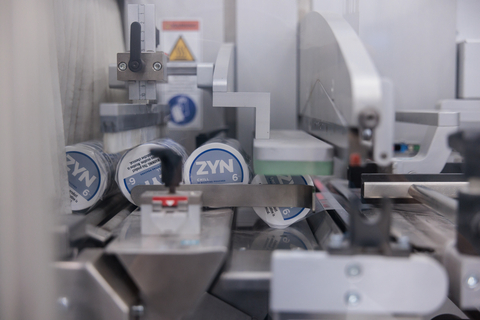Are you struggling to find a reliable nicotine pouch supplier? Many wholesalers face big problems getting good products fast. You want good prices. You need steady supply. But most makers let you down.
The Problem Is Real
Finding quality nicotine pouches is hard. Many wholesalers tell us:
- Orders come late
- Prices jump up with no warning
- Quality is not the same from batch to batch
- Small makers can’t fill big orders
- Some products don’t pass rules in your country
This makes your job hard. Your shops wait. Your customers get mad. You lose money.
This Pain Gets Worse
When your nicotine pouch supply stops, bad things happen:
- Shops call you all day asking “Where is my order?”
- Your best customers go to other sellers
- Your brand looks bad
- You miss the big market growth (29.6% growth in US from 2025-2030)
- The $5.17 billion global market keeps going… without you
Each day without stock means lost sales. Each upset shop means trust breaks. The nicotine pouch world moves fast – the market will hit $6.69 billion by 2025. Are you missing this big chance?
The Solution: Your Strong China Supply Partner
Good news! We fix all these problems. Our Shenzhen factory makes top nicotine pouches that match all the big brands. We make:
- ZYN nicotine pouches just like the ones taking over the market
- FOX pouches with perfect flavor match
- PABLO style products with fast shipping
- VELO quality at better prices

Why smart wholesalers pick us:
- OEM/ODM Experts – We make products that look and feel just like the top brands but at much better prices
- Ready Stock – No waiting! We keep products on hand for fast shipping
- World-Class Quality Control – Every batch tested for:
- Fill weight accuracy
- Portion consistency
- Flavor stability
- Nicotine level precision
- Safe Global Shipping – We send to any country with smart, safe methods that work
- Flexible Orders – Start with samples, then buy big when you see the quality
Our Manufacturing Strength
Our Shenzhen plant has top technology:
- High-speed pouch filling machines
- Moisture-controlled production rooms
- Precision nicotine salt mixing
- Advanced flavor labs for perfect taste
- Quality testing at every step
We use only high-purity fillers and pharmaceutical grade nicotine. Our plant fiber processing gives the best feel in the mouth.
See What Makes Us Different
| What You Get | Other Suppliers | Our Factory |
|---|---|---|
| Minimum Order | High MOQs only | Start with samples |
| Production Speed | 4-6 weeks | Stock ready now |
| Quality Level | Varies by batch | GMP standards always |
| Brand Match | Close but not same | Perfect match to ZYN flavors |
| Global Shipping | Limited countries | Ship anywhere safely |
| Pricing | High with hidden fees | Low, clear pricing |
The Market Is Growing Fast
The data tells a clear story. This market is taking off:
- Global market: $5.17 billion in 2024
- Growing to $6.69 billion by 2025
- US market alone: $4.09 billion with 29.6% growth
Smart wholesalers are stocking up now. As more adults seek smoke-free options, nicotine pouches fill this need.
Our Product Range Covers All Needs
We make all the top styles:
- ZYN pouches in all strengths (3mg to 11mg)
- All white format for clean use
- Dry and moist types
- All top flavors from mint to fruit
- Private label with your brand name
- Custom packaging options
Flavor options include:
- Cool mint
- Citrus
- Coffee
- Wintergreen
- Berry mix
- Cinnamon
- And many more!
How To Start: Simple Steps
Step 1: Order samples to test quality Step 2: Try with your customers Step 3: Place bulk order (as small as you need) Step 4: We ship fast to your door Step 5: Grow your sales with steady supply
What Our Customers Say
“We tried three China suppliers before finding this factory. Their ZYN nicotine match is perfect and now we have happy shops all over Europe.” – UK Wholesaler
“From samples to full container in just 12 days. My shops love the quality and I love the price.” – US Distributor
“The fact that they have ZYN stock ready to ship saved us when our normal supplier had delays.” – Canadian Retailer
Quality That Stands Out
Our plant meets all key standards:
- GMP compliant manufacturing
- ISO 9001:2015 certified
- Full batch tracking
- Lab tested for purity
- Moisture-controlled environment
The nicotine extraction refinement process we use gives a smooth, clean hit that users love.
Pricing That Makes Sense
We keep prices low by:
- Making in big volume
- Running our own factory
- Cutting out middle steps
- Using smart supply chains
- Working direct with wholesalers
This means more profit for you!
Why Fast Action Matters
The nicotine pouch market is growing at record speed. Each day you wait means:
- Lost sales
- Competitors taking your shops
- Missing the fast market growth
With market growth at 29.6% CAGR in the US, now is the time to lock in your supply chain.
Ready To Solve Your Supply Problems?
Here’s what to do now:
- Email us at [email protected]
- Tell us which products you want samples of
- Share your target price points
- Let us know your market/country
- We’ll send samples in 3 days
Our Product Tech Highlight
We make all pouches with:
- Microcrystalline cellulose base
- Pharmaceutical-grade nicotine salts
- Natural and synthetic flavors
- Food-grade ingredients only
- Child-resistant packaging
- Long shelf life (18+ months)
Shipping That Works
We know how to get products to you:
- Air freight for fast small orders
- Sea shipping for big orders
- Split shipping methods when needed
- Smart customs documentation
- Discreet packaging options
- Full tracking at all steps
Try The Best ZYN Flavor Copies Today
Our most popular items are:
- Cool Mint 9mg (just like ZYN)
- Citrus 6mg (perfect VELO match)
- Coffee 11mg (strong option)
- Berry Mix 3mg (mild starter)
Sample packs let you try them all!
Make Your Brand Stand Out
Need your own brand? We do that too:
- Full private label service
- Custom can designs
- Your logo and colors
- Special flavor mixes just for you
- Low MOQs for new brands
The White Pouch Revolution
The all-white format is taking over the market. Our plant fiber processing creates perfect white pouches that:
- Leave no stains
- Feel good in the mouth
- Release flavor just right
- Hold nicotine at the right speed
- Stay fresh longer
Time To Act Is Now
Stop losing sales to supply problems. With the nicotine pouch market set to hit $6.69 billion by 2025, you need a partner who can keep up.
We are that partner. From our GMP-compliant facility to our ready stock of top brands like ZYN pouch copies, we solve your supply chain headaches.
Get In Touch Today
Start with samples. End with success.
The global nicotine pouch boom is happening now. Make sure you’re part of it with a supply chain that works.
Order Your Test Pack Now
For just $50, get a full test pack with all our top sellers. See the quality for yourself, then scale up to the volumes you need.
Your nicotine pouch supply problems end today!

